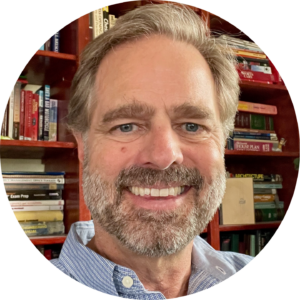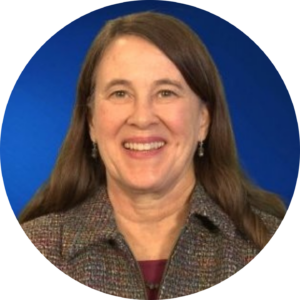Experienced Project Management experts will cover the key concepts of Project Execution Plan (PEP) with a focus on Research Infrastructure (RI) Mid-scale projects.
Topics covered include:
- Basic Project Management concepts for RI projects receiving financial assistance through Cooperative Agreements (CA)
- Overview and initial steps in developing PEP for Mid-scale projects in accordance with the NSF’s RI Guide (RIG) to improve response to NSF solicitations.
- The first two components of the PEP; Introduction and Organization.
Experienced Project Management experts will dive deeper into key Design/Development and Project Definition elements of PEP with a focus on Research Infrastructure (RI) Mid-scale projects.
Topics covered include:
- Work Breakdown Structures (WBS)
- Project milestones and schedules
- Basis of Estimate (BoE)
- Budgets for control and mitigation of project risks, to arrive at Total Project Cost (TPC).
Experienced Project Management experts will close out the webinar series by cover the remaining components of the PEP, and highlight performance management techniques that are scalable and tailorable to satisfy NSF requirements with efficiency, while also satisfying NSF’s statutory obligations for managing and oversight of Mid-scale RI projects.
The webinars will be useful for those submitting proposals to NSF’s Mid-scale RI-1 and RI-2 program, current Mid-Scale RI awardees and all others wishing to add to their project management knowledge.
Sessions will offer PDUs for Project Management Institution (PMI) Certifications. Course IDs will be provided with your certificate of participation if you indicate during registration that you are interested in PDUs.
For those who cannot attend the live webinar, all recorded webinar sessions will be available on-demand in the Knowledge Sharing Gateway shortly after the event. To stay informed of future Large Facilities Office events, sign up to Get Notified.

Mr. Ryszard ‘Rich’ Kaczmarek joined the NSF from the State Department’s Bureau of Overseas Building Operations (OBO), where he served as a senior engineer overseeing broad aspects of physical security engineering at various diplomatic posts. Prior to OBO, Rich managed comprehensive energy reporting, facilities engineering, and technology programs at the Pentagon for the US Army’s Deputy Chief of Staff for Installations Management (DCS, G-9). He represented the Army on multiple Department of Defense technical expert panels related to energy and water technology, and facilities engineering. Rich also served as the Magnetic Silencing Facilities Program Manager for the Engineering and Expeditionary Warfare Center (EXWC), former Naval Facilities Engineering Service Center, where he managed program for worldwide projects supporting Naval deperming and degaussing structures and ranges.
In his earlier carrier Rich graduated from the US Navy’s Civil Engineer Corps Officer School to serve as the Assistant Resident Officer in Charge of Construction during vibrant $500M reconstruction of the Naval Recruit and Advanced Training Center near Chicago. Rich served as a US Navy Diving Officer, Engineer in Charge, Company Commander and Offshore Petroleum Discharge System Officer in Charge when assigned to the Amphibious Construction Battalion, then as an Engineering Project Officer with the Multinational Force in Iraq, Deputy Resident Officer in Charge of Construction at Camp Butler Okinawa (Japan), and previously as an Engineman and Surface Rescue Swimmer aboard guided missile destroyer USS RAMAGE, tank landing ship USS LAMOURE COUNTY, and with the NAVAL CARGO HANDLING BATALLION. Rich’s latest active-duty tours include Advanced Undersea Technology Program (PMS 395) at the Washington Navy Yard and the Production Division Director at the Public Works Department of Camp Lemonier, Djibouti (East Africa). While serving with the PMS 395, Rich was selected as the NAVSEA’s Engineer of the Year and the following year joined the Top Ten Federal Engineers selected by the National Society of Professional Engineers.
After two decades of service with the US Navy’s Facilities Engineering and Sea Systems Commands, and before returning to work for the Federal Government, Rich worked in the private sector as the engineering manager for the naval architecture and engineering design firm Gibbs & Cox. He was commissioned to assist with implementation of the ship-based ballistic missile defense systems in a shore application (AEGIS ashore) in Poland.
Rich brings a broad experience, backed by the Professional Engineer registrations, full qualification as a Joint Qualified Officer, Surface Warfare Specialist, Seabee Combat Warfare Officer, U.S. Navy’s Deep-Sea Diving and Ocean Facilities Program Officer, and a Defense Acquisition Workforce Improvement Act (DAWIA) Level III Contracting Officer, Level III Facilities Engineer, and the Defense Acquisition Corps professional.
Rich earned Master of Engineering degree and Technology Management certificate from the University of California (UC Berkeley). Rich also earned Master of Business Administration from the Webster University, and an undergraduate Ocean Engineering degree with concentration in Naval Architecture, from Virginia Tech. He is completing doctorate in Critical Infrastructure Program and is a member of several professional societies, including ASNE, SAME, and AUSA.
Rich is a native of Poland. He enjoys sailing, skiing, and travelling with his family of wife Dr. Kasia Kaczmarek, and daughters Barbara and Marta. The fifth member of their family is Belgian Malinois named Charlotte.

Dr. Rabanal began her career working in environmental engineering science as a member of the research staff of the Occoquan Laboratory of the Virginia Tech. In 1995, she joined the Division of Chemistry in the NSF Directorate for Mathematical and Physical Sciences (MPS), and played a significant role in Program Management across several programs, including Advanced Materials, Major Research Instrumentation, Chemistry Research Instrumentation, and Facilities. While in MPS, Dr. Rabanal was also involved in Foundation-wide Programs such as the NSF/EPA Water and Watersheds initiative, Environmental Chemistry, and Geochemistry. In 1998, she assumed a joint position with the MPS Front Office and the Office of Information and Resource Management (OIRM) where she led the first Directorate-wide implementation of NSF’s web-based research business system, FastLane. In that capacity, she worked with US Academic Institutions, International Institutions, the US scientific community, and NSF Program Staff. In 2004, while on detail to the NSF Academy, Dr. Rabanal served as the primary Agency Liaison with the US Office of Personnel Management (OPM) Government-wide E-Learning Initiative. At the same time, she led the implementation of the NSF learning management system.
Dr. Rabanal is currently a member of the Large Facilities Office staff where she leads the Agency’s primary advanced monitoring activity for its large research infrastructure Facilities/Projects, and serves as an advisor on associated Agency policies and procedures. Dr. Rabanal maintains her scientific interest in environmental sciences, and has also advanced her professional development through studies and active participation in the Chief Financial Officer Academy at the National Defense University. Dr. Rabanal holds an undergraduate degree in Chemistry, MS in Environmental Sciences and Engineering, and a DSc. in in Engineering Management.

Mark Warner is a Project Manager with the National Solar Observatory (NSO). Accomplishments include management of the eleven-year long, $362M Daniel K. Inouye Solar Telescope (DKIST) design-build construction project, which was successfully completed in late 2021. Mark is a degreed and licensed professional engineer (PE), and has a project management professional (PMP) certification.
His career spans nearly 40 years, and his expertise includes aerospace engineering, management of large-scale construction projects, design and fabrication of precision machinery and instrumentation, and the oversight and management of complex large-scale science and engineering projects. He is also the author of five published automotive technology books. Mark has lived and worked throughout North America, Europe, and Hawaii. He and his wife reside in Tucson, Arizona. His long-running project management blog can be found at www.TheProjectManagementBlueprint.com.

Lorem ipsum dolor sit amet, consectetur adipiscing elit, sed do eiusmod tempor incididunt ut labore et dolore magna aliqua. Ut enim ad minim veniam, quis nostrud exercitation ullamco laboris nisi ut aliquip ex ea commodo consequat. Duis aute irure dolor in reprehenderit in voluptate velit esse cillum dolore eu fugiat nulla pariatur. Excepteur sint occaecat cupidatat non proident, sunt in culpa qui officia deserunt mollit anim id est laborum.
Lorem ipsum dolor sit amet, consectetur adipiscing elit, sed do eiusmod tempor incididunt ut labore et dolore magna aliqua. Ut enim ad minim veniam, quis nostrud exercitation ullamco laboris nisi ut aliquip ex ea commodo consequat. Duis aute irure dolor in reprehenderit in voluptate velit esse cillum dolore eu fugiat nulla pariatur. Excepteur sint occaecat cupidatat non proident, sunt in culpa qui officia deserunt mollit anim id est laborum

If you are interested in speaking, have examples to share, questions to ask, or have other related topic suggestions, please contact us at rioutreach@nsf.gov.
Registering in advance for the Webinar is recommended and will help us plan for engagement. On the day of the event, you will be allowed to register and receive access the same day.
Yes. On-demand videos of our previous Webinars can be found on the Research Infrastructure Knowledge Sharing Gateway.
Agendas for each event are posted as soon as they are available on the event webpage.
The Large Facilities Office intends to host one-day Webinars on a quarterly basis via Zoom, with a focus on select topics.
We will be using Zoom to host all Research Infrastructure Webinars. We recommend that you verify the system requirements below prior to joining the Webinars:
- Most recent version of Chrome, Firefox, Edge or Safari
- Operating system: Windows 7+, Mac OS X 10.7+, or Ububtu 10+
- Access to Zoom
Zoom’s Bandwidth Requirements are:
- 2.0 Mbps up and down for single screen
- 2.0 Mbps up 4.0 Mbps down for dual-screen
- For audio VoIP: 60-80kbps
For more information please visit Zoom
- It can help to close other tabs, browsers, and programs while streaming the live webinar. It also may help to hardwire your Internet connection instead of using a wireless network connection.
- If you are having trouble hearing the Webinar audio, check the volume on your computer and on your video player.
- If your computer screen freezes, please refresh your browser.
- If you lose access to the event, please try to log back in before contacting IT support.
- All presentations will be recorded and made available in the Knowledge Sharing Gateway shortly after the Webinar.
Data collected for this event will be used for registration and email communications. Please note that we collect no personal information about you when you visit our website unless you choose to provide that information to us. All information submitted by visitors is voluntary. You may request the removal of personal data collected by emailing RIOutreach@nsf.gov.
For more information on NSF privacy policies, please visit the following link: https://www.nsf.gov/policies/privacy.jsp.
We reserve the right to change, remove, or otherwise modify the contents of the Site at any time for any reason at our sole discretion without notice. We cannot guarantee the Site will be available at all times. We may experience hardware, software, or other problems. We may need to perform maintenance related to the site, resulting in interruptions, delays, or errors.
Most text appearing on the Site was either prepared by employees of the United States Government as part of their official duties and therefore not subject to copyright or prepared under contracts that gave the National Science Foundation the right to place the text into the public domain. You may freely copy that material and, at your discretion, credit NSF with a “Courtesy: National Science Foundation” notation.
Code of conduct. Be respectful, be considerate, and do not harass. There is zero tolerance for online harassment. Harassment includes cyberstalking, hateful speech and threats, and intentional flooding of a person or institution’s phone or email accounts. Immediately report any bad behavior to RIOutreach@nsf.gov. The organizers will address the issue, which may include removing the participant.
